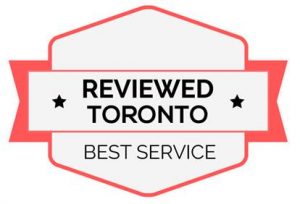Debt management is a process typically spearheaded by a financial counselor who helps individuals who find themselves spiraling in debt, particularly unsecured debts such as credit card debt. By crafting a detailed debt management plan, the counselor can centralize all debts into a single, manageable monthly payment. Over time, steadily sticking to this plan could help borrowers reduce their total debt load and eventually eradicate their dues.
Counseling services also work on the interest rates for these aggregated debts, negotiating for reduced rates with the creditors. This approach can speed up the rate at which you pay off your bills, consequently improving credit scores over time. However, there are alternatives to this approach, such as applying for a debt consolidation loan to pay off all existing dues. This strategy can also help manage debts more efficiently but could affect one's credit score initially. It's a delicate balance, as bankruptcy is the last resort and can have long-term adverse effects on financial health.
What is Debt management?
Debt management is a strategy that involves renegotiating or consolidating outstanding debts to make them more manageable and less burdensome. This process often includes various elements such as assessing income, examining credit report scores, managing accounts, making agreements with debt collectors or debt settlement companies, and even dealing with specific types of debts like student loans and medical bills. A debt management plan provides a comprehensive approach to balancing these various aspects, often leading to more feasible payment terms and better control of one's financial health.
In many cases, individuals struggling with debt management opt to seek help from a credit counselor. These professionally trained individuals provide valuable insights and guidance into the intricacies of managing debt. They can assist in dealing with credit cards balances, negotiating with debt collectors, avoiding credit counseling scams, and even reaching agreements with debt settlement companies. A well-structured debt management program developed in collaboration with a credit counselor can take the weight of overwhelming debt off one's shoulders and serve as a roadmap towards a financial fresh start.
Debt management strategies encompass a variety of methods aimed at helping individuals secure their financial standings. A key element in these strategies is understanding the difference between secured and unsecured debt. Secured debt is anchored by an asset, such as property, which can be seized by the creditor in case of non-payment. On the other hand, unsecured debt like credit card balances does not involve any asset.
One reliable strategy often employed is seeking assistance from a nonprofit credit counseling agency. These agencies work with clients to craft a repayment plan tailored to their financial situation and help negotiate time payments or even rate reductions with creditors. This might span several facets, ranging from credit card bills to personal loans. Another strategy is to utilize debt settlement, a method by which the debtor negotiates with the creditor to reduce the overall amount owed. It's important to bear in mind that each of these options involves potential risks and benefits. For example, securing the help of a credit counseling agency may lead to lower monthly payments, but it may also impact the debtor's credit score. Government-regulated payment plans can also offer relief, but often require the debtor to meet specific criteria.
The idea that you need to sacrifice to pay off debt can be a difficult concept to swallow. But you are sacrificing anyhow. The sacrifice is your future as the debt inches forward and your health and happiness if you have debt stressing you out. However, the key to accomplishing this is developing habits that enable you to save money, setting financial goals, and creating a system to track your progress.
To achieve your financial goals, you should create a budget and stick to it. Always remember that paying off your debt and saving should be part of that budget.
Reading books, enrolling in courses, or attending webinars(including the free ones) can help you establish a working system that will assist you in tracking your progress. Click here to learn personal finance management in Canada.
Creating a budget for debt repayment involves carefully examining your financial obligations and steady income. The process begins by listing all types of debt, from credit card accounts to medical debts, and assessing their standing in terms of interest rates, outstanding amounts, and payment schedules. It is crucial to clearly understand your spending patterns and establish your ability to repay over a specified period of time. Remember, tracking even the smallest purchases may only take a few minutes, but it provides an accurate overview of your spending habits, assisting in the drafting of a realistic budget.
A beneficial tool in budget creation is a report of your financial history. This report not only gives an overall picture of your indebtedness, but it can also help create a plan to tackle the highest interest rates or the easiest payoff first. Simultaneously, defining a dedicated plan can alleviate the pressure of rising debts and calls from debt collectors. Consultation with nonprofit credit counselors may also be advantageous, providing external, professional insight into managing your debts effectively. Their expertise may introduce new strategies for budget creation and debt handling.
One principal method of managing debt consolidated under a single account is through Debt Management plans. These plans are typically offered by credit card companies and other profit companies who work to structure a repayment process that accommodates your financial capabilities. By using strategies such as the debt snowball or debt avalanche methods, these firms aim to reduce your original debt as swiftly as possible while minimizing the negative impacts on your credit score.
Another alternative for debt consolidation revolves around secured loans. Debt consolidation loans can be obtained from certain financial institutions, and these loans essentially replace multiple debts with a single, typically more manageable, loan. Additionally, debt settlement plans, that involve negotiating with Debt collection agencies to reduce the amount owed, can also be an effective means of managing overwhelming debt. However, it is vital to consider the potential risks and drawbacks such as potential damage to your credit score before engaging with external debt management companies.
Negotiating with creditors can become a necessity when debt collection calls become too frequent or debt payments unmanageable. During such challenging times, you can consider various debt relief options as a part of your strategy. Engaging with a reputable credit counseling organization can provide a multitude of such options. These organizations offer financial counseling sessions that include assessing personal credit card debt and outstanding debts, offering a gamut of Debt relief tools to help manage your financial situation, and suggesting suitable strategies tailored to your need.
Choosing a proper debt settlement provider can also open up feasible options for debt relief. Nonprofit credit counseling organizations often play a crucial role in this process, helping individuals to understand and choose the right plans. In extreme cases, personal bankruptcy could be a possibility, but it's advisable to discuss with a bankruptcy attorney before deciding. Bankruptcy could significantly impact one's financial standing, so it should be the last resort after exhausting all debt management strategies. Be cautious and informed, this way you can avoid falling prey to scams, ensuring the right path towards financial stability.
Effective debt reduction plans often leverage balance transfer cards. These cards allow you to consolidate multiple credit accounts, rolling outstanding balances into one centralized location. This consolidation frequently offers lower interest rates on balance transfers for a promotional period providing relief and simplifying the management of your debts. Given the complexity of balance transfers and credit terms, many aid-seekers consult a reputable credit counselor. Agile counsel can guide you to the right balance transfer credit card suited for your annual income and expenditure, successfully mitigating risks.
Another successful strategy involves agreeing upon a payment schedule with your creditors. This can be particularly useful for managing overwhelming child support obligations or when restructuring arrears on other types of debt. This agreed-upon payment schedule can assist in improving your credit utilization ratio, a critical component of your overall credit score. Government programs offer opportunities to navigate such negotiations if this seems daunting. Remember, credit repair is a systematic and committed process; keeping a strict schedule for repayments can help reduce debt effectively.
Navigating through the financial wilderness can be an uphill task. In an individual's financial journey, they may face nuances that are beyond their understanding, and that’s where a financial advisor becomes a necessity. In the context of debt management, a financial advisor's help is essential when you don't understand the impact of debt utilization, or if you are unsure how your payment history influences your credit history.
Non-profit organizations can also provide credit counseling services that can help you manage debt. These non-profits can advise you on debt management plans, assist you with creditor negotiations, and provide educational materials to improve your financial literacy. Bear in mind, however, that these organizations may charge a setup fee or a monthly maintenance fee for their services. If you find yourself faced with a legal proceeding due to unpaid debt, or if there's an error in your credit report from the credit bureau—these are situations where a financial advisor can help you resolve the issues and maintain your credit limit. They can offer strategies to improve your credit profile, and can even liaise with Accounts Receivable on your behalf. Bear in mind, skilled advice can provide a much needed lifeline in managing debt effectively.
Credit counseling services come with myriad benefits that can significantly ease a debtor's financial burden. Accessible through various platforms such as credit unions, these services guide clients in making their payments affordable by devising tailored plans that reflect their financial situations. This can often include converting multiple bills into a single payment, making the management of debts less complex. Moreover, the advice given often factors in the potential negative consequences of missing payments or making late payments, hence encouraging timely payments.
One outstanding benefit is the scheduling of follow-up sessions, which work towards making real progress in debt management. It can be likened to a guide through what could be a financial maze. Moreover, credit counseling services boost one’s defense against legal action from creditors; a credit agency could negotiate on one’s behalf to lower minimum payments or merge multiple debts into a single loan. Certain circumstances like a natural disaster that may lead to a financial downturn are often considered in such negotiations, which could provide temporary relief for the debtor.
To protect yourself from credit counseling scams, it's important to understand a few key indicators of fraudulent practices. Firstly, be wary of agencies that promise instant debt relief or that propose solutions such as consolidation loans without thoroughly assessing your individual financial situation. Also, be wary of firms which claim they can modify federal loans or stop collection calls from collection agencies, as this is often untrue. Make sure any guarantees made by an agency are backed by evidence and not just persuasive sales talk.
Furthermore, reputable credit counseling agencies, particularly nonprofit organizations, provide educational tools and resources to help manage your finances. They typically suggest a debt management plan that spans over a 3-5 year repayment period, a more realistic and achievable timeline for most debtors. If an organization promises to eliminate your debt in a significantly shorter time frame, this could be a red flag. In conclusion, being knowledgeable about these signs can greatly increase your chances of avoiding credit counseling scams.
Another way of managing your dues is by “re-capturing” debts. This method is a concept that many Canadians may be unaware of. It involves capitalizing on a system and building equity that you can access to pay off your third-party creditors. You may take a longer time to pay your creditors when you apply this process entirely. However, the basic idea is to build up a system that turns your external debt into inside debt, and in return, you can then use it to pay off your third-party debt. The advantage of applying this system is that you build a lifetime asset that continues to grow.
You can quickly eliminate all third-party creditors using the process without working harder or changing your cash flow.
Furthermore, re-capturing your debt will eliminate your creditors, build up your system's equity, and make your plan a sustainable asset. This accumulation happens because your system is constantly working. It is not being interrupted by sacrificing suture growth potential while paying off your creditors.
Isn't this subtle change worthwhile?
Contact Ascendant Financial today.









© 2024 Ascendant Financial Inc. All rights reserved.
The supporting material, audio and video recordings and all information related to Introduction to Becoming Your Own Banker, The Infinite Banking Concept (IBC) posted on www.ascendantfinancial.ca and all other Ascendant Financial Inc. websites are designed to educate and provide general information regarding The Infinite Banking Concept (IBC) and all other subject matter covered. It is marketed and distributed with the understanding that the authors and the publishers are not engaged in rendering legal, financial, or other professional advice. It is also understood that laws and practices may vary from province to province and are subject to change. All illustrations provided in these materials are for educational purposes only and individual results will vary. Each illustration provided is unique to that individual and your personal results may vary. Because each factual situation is different, specific advice should be tailored to each individual’s particular circumstances. For this reason, the reader is advised to consult with qualified licensed professionals of their choosing, regarding that individual’s specific situation.
The authors have taken reasonable precautions in the preparation of all materials and believe the facts presented are accurate as of the date it was written. However, neither the author nor the publishers assume any responsibility for any errors or omissions. The authors and publisher specifically disclaim any liability resulting from the use or application of the information contained in all materials, and the information is neither intended nor should be relied upon as legal, financial or any other advice related to individual situations.
Family Banking System (FBS)™ is a trademark of Ascendant Financial Inc. © Ascendant Financial Inc., 2024. All rights reserved. The phrase “Live the Lifestyle, Love the Process, Infinite Banking” is a registered copyright (Registration No. 1209863) with the Canadian Intellectual Property Office. Unauthorized use, reproduction, distribution, or copying of this phrase, in whole or in part, without express written permission from Ascendant Financial Inc. is strictly prohibited. This copyright is protected under Canadian intellectual property laws and regulations. Any unauthorized use is subject to legal action and enforcement under Canadian law. For inquiries or requests for permission to use this copyright, please contact Ascendant Financial Inc.
The Infinite Banking Concept® is a registered trademark of Infinite Banking Concepts, LLC. Ascendant Financial is independent of and is not affiliated with, sponsored by, or endorsed by Infinite Banking Concepts, LLC.”
This content is intended for Canadian residents of BC, AB, SK, MB, ON, NB, NS, NU, YT, PEI & NFLD only.